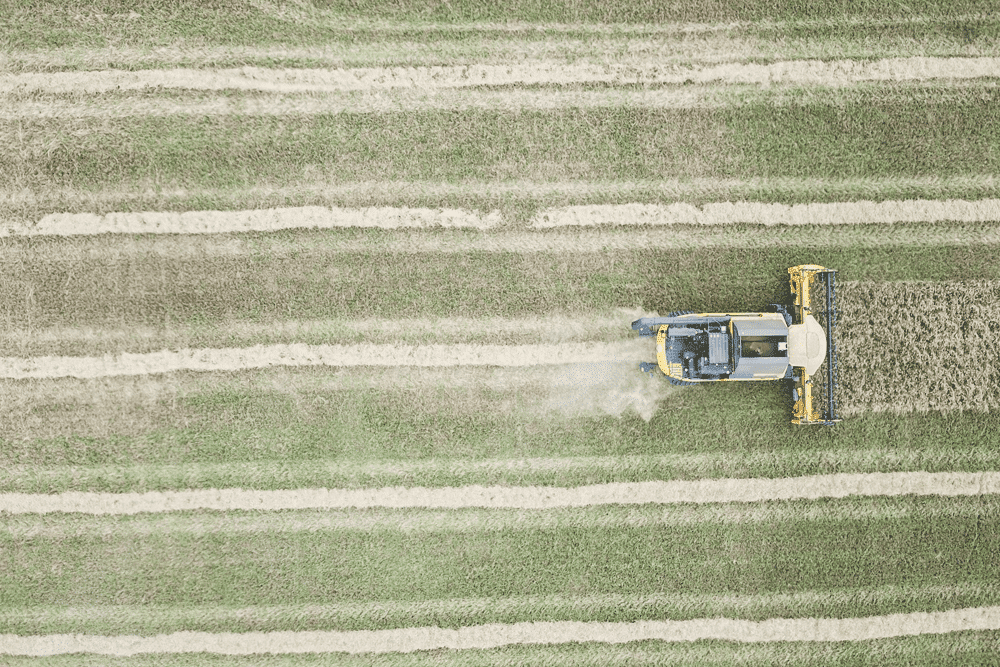Session Speakers:

Antonio Samaritani
CEO, ABACO

Dr. Debisi Araba
Visiting Researcher, Imperial College London
Share
Listen to this content
Key Takeaways
- Agricultural innovation and technology are gaining interest from investors. Still, the focus is shifting from specific technologies or use cases to enabling policy, regulatory, and funding environments for entrepreneurship/innovation in the agriculture sector.
- Biotechnology and data-related technologies are two of the leading technologies in agriculture. Biotechnology has the potential to revolutionize agriculture with life science applications to crop management and livestock. At the same time, data-related technologies can support making data available and valuable, and analytics in agriculture is critical for decision-making.
- The industry is on the verge of what we could call Food 3.0, with growing interests in personalized nutrition and new foods and sources of proteins. Food and water consumption ethics are growing topics central to agriculture, food, and FoodTech investments.
- There is a cultural problem with data sharing, and countries need to start sharing their data more and improving the trust in data systems. Agricultural data governance is also critical.
- We must find a way to smoothen global chains through the right policy decisions and investments. When some countries overproduce food resources while others face famine and food security crises, governments must import/export and share practices with other countries.
Innovation and technology are transforming agriculture, creating new investment opportunities and products. That was the focus of a session at the Investopia 2022 Inaugural Summit featuring Dr. Debisi Araba, Visiting Researcher at Imperial College London, and Antonio Samaritani, CEO of ABACO.
The speakers discussed the changes they saw in agriculture and the most promising technologies and investment opportunities in the sector. They noted that while there is growing interest in innovation and technology, many investors are more interested in the public sector innovations in agriculture, including policy, regulatory, and funding environment for entrepreneurship and innovation.
Samaritani emphasized the need for a more systemic approach to agriculture innovation and AgTech. He said data should be at the center of changes and investment focuses. While new technologies, such as blockchain, are not essential, they have suitable applications for agriculture. Samaritani believes the agricultural industry requires global standards and integration.
According to the speakers, biotechnology and data-related technologies are the leading technologies in food and agriculture. Thanks to technological advancements, biotechnology will revolutionize agriculture with life science applications to crop management and livestock. The Bezos Earth Fund has recently announced it will spend $17 million on the Consultative Group on International Agricultural Research’s Future Seeds plant gene bank.
Data-related technologies, such as analytics, are essential for decision-making. The speakers agreed that it is necessary to ensure that technologies can support making data available and valuable, improving agricultural data governance and data sharing.
In a time when some countries overproduce food resources while others face famine and food security crises, food and water consumption ethics are central to agriculture, food, and FoodTech investments. Speakers believe we are on the verge of what could be called Food 3.0, with growing interests in personalized nutrition and new foods and sources of proteins.
Data sovereignty in agriculture is critical. The agricultural sector is one of the few sectors where governments have most of the data because it is mainly financed by the public sector, especially in the EU. However, there is a cultural problem with data sharing, and countries need to start sharing their data more and improving the trust in data systems.
Finally, the speakers stressed the need to find a way to smoothen global chains through the right policy decisions and investments. Countries need to do import/export and share practices with other countries. As Charles Darwin said, “the species that best survive are the ones who adapt.” The same applies to agriculture.
Investors interested in agriculture should keep an eye on biotechnology and data-related technologies, which are likely to shape the future of agriculture. Meanwhile, governments need to create an enabling policy, regulatory, and funding environment for entrepreneurship and innovation in the sector.
Dr. Debisi Araba added that no country could solely grow and consume what it produces, and some governments need to stop thinking it is possible. Instead, countries should look to import, export, and share practices with other countries. As Charles Darwin said, “the species that best survive are the ones who adapt.” The same applies to agriculture.
The speakers agree that data sovereignty in agriculture is critical and must improve agricultural data governance. We must find a way to smoothen global chains through the right policy decisions and investments. When some countries overproduce food resources while others face famine and food security crises, food and water consumption ethics are growing topics central to agriculture, food, and FoodTech investments.
The speakers believe that we are on the verge of what we could call Food 3.0, with growing interests in personalized nutrition and new foods and sources of proteins. Biotechnology and data-related technologies are the leading technologies in food and agriculture.
Thanks to technological advancements, biotechnology will revolutionize agriculture with life science applications to crop management and livestock. The Bezos Earth Fund has recently announced it will spend $17 million on the Consultative Group on International Agricultural Research (CGIAR)’s Future Seeds plant gene bank.
On data-related technologies, Antonio Samaritani added that we need to ensure that technologies can support making data available and helpful. Analytics in agriculture are key, and data + analytics is key for decision-making.
In conclusion, the speakers at Investopia 2022 Inaugural summit discussed the changes and opportunities in the agriculture sector. The speakers agreed that most current investors are more interested in public sector innovations in the agriculture sector. Investors now look more at how governments create an enabling policy, regulatory, and funding environment for entrepreneurship/innovation in the agriculture sector than at technologies per se.
Dr. Debisi Araba believes that the most interesting in the Agriculture field are often those not addressing traditional markets. There is a growing interest in innovation and technology in the agriculture sector. A common misconception is that all investment interests are related to specific agricultural technologies or use cases.
Antonio Samaritani advocates a more systemic approach to agriculture innovation and AgTech. Data should be at the center of changes and investment focuses. All new technologies in which people are currently investing, such as blockchain, are not essential, but they have suitable applications to agriculture. What is presently needed is to use the existing technologies and put them all together to work for the sake of the agricultural industry, which requires global standards and integration.
Agriculture is one of the most critical sectors for food production and global food security. The sector must adapt to new technologies and innovations to sustain its position as a vital food source and other products. As the world’s population grows, the agriculture sector’s role in providing safe and nutritious food will continue to be critical.









